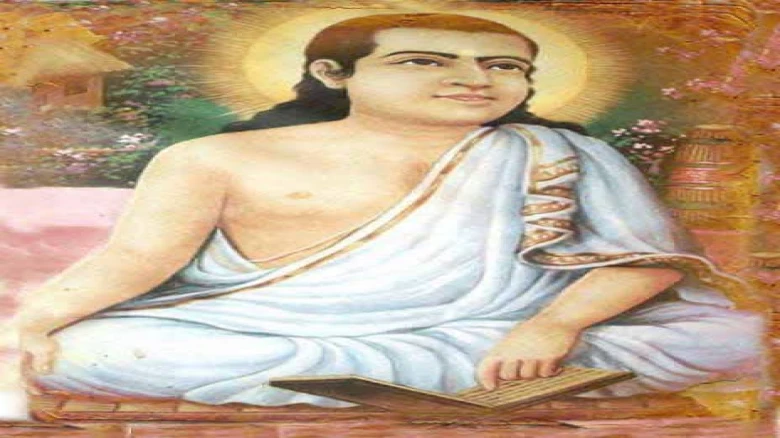National

The "Kirtan Ghosa," "Gunamala," and other literary works are among Sankardev's most illustrious contributions to literacy.
color:#111111">
Digital Desk: Great saints and other notable individuals in
various disciplines were occasionally born in India, which is why many visitors
from other countries have been to India since ancient times.
Srimanta Sankardev is
one of those great saints who was born in Assam. On August 29, which is his
punya tithi, we celebrate Srimanta Sankardev's death anniversary. He was born
on September 26, 1449, and he entered a heavenly residence on August 23,
1568 (he lived for around 120 years).
His literary and creative works have become ingrained
traditions in Assam. The religion he promoted is widely practiced, and the
Sattras (monasteries) he and his followers founded are still flourishing and
upholding his legacy.
He was an important person in the social and religious
history of India in general and Assam in particular. He was the sixteenth
saint-scholar.
Additionally, one of India's ancient dance forms today is
Sattriya dance, which Sankardev created and perfected and which the Sattras
afterward preserved for generations. Sattras are neo-Vaishnavite monastic
organizations that serve as Assam's social, religious, and cultural hubs for
the benefit of the readers.
The Sattras, which are
an essential part of Assamese life and culture, contain the old religious
doctrine and artistic expressions connected with it. The Sattras served as the
bhakti movement's nodes. The majority of them were built with funding from the
then-ruling monarchs of Koch and Ahom.
The "Kirtan Ghosa," "Gunamala," and other
literary works are among Sankardev's most illustrious contributions to
literacy. Sankardev promoted devotion, or bhakti, and advocated for a concept
of atonement by prayer, reflection, and faith as opposed to sacrifices or idol
worship, as was done by traditional Hindus.
The main goals of this "movement" when it first began
were to promote social reform, spiritual advancement, and racial harmony. A
kind of bhakti known as eka-sharana-naam-dhrama (chanting of one name of God)
was established on the four fundamental foundations of deva (God), naam (prayer),
bhakats (devotes), and guru (Mentor).
Every follower is equal in the eyes of God, according to this
fundamental concept. There isn't any caste-based prejudice.
In order to consolidate and synthesize his spirituality and
beliefs, Sankardev travelled widely throughout the northern regions of the
Indian subcontinent.
He visited many places, including Jagannath Dham, Puri, Gaya,
Kashi, Prayag, Ayodhya, and Sita Kunda, with his four students Sarvajoy,
Paramananda, Ram Ram Guru, and Baloram.
Sankardev was a genius in whom all these qualities were
combined, according to VS Agarwala of Benaras Hindu University
(thenewsmill.com/srimanta-sankardev-and-his-greatness). There are poets and
composers, saints and religious teachers, musical experts, and preachers.
We honour the revered saint, Assam has ever known on his death
anniversary (punya tithi).
Leave A Comment